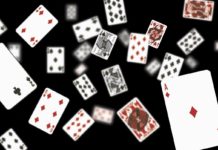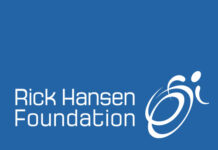The Region of Waterloo Arts Fund announced the artist projects that will receive the spring round of funding June 26.
The $129,400 total was divided up between 23 projects that covered a diverse range of subjects and mediums.
Among the projects is Algorithmyth, by UW associate professor of drama and speech communication Andrew Houston and Wilfrid Laurier University music professor Peter Hatch.
Houston and Hatch’s project is based on algorithms and their connection to the arts, theatre, and ritual; it will also be interactive.
The starting point will be a critique of algorithms in the financial industry where the inspiration for the project came from. From there, they want to explore the similarities between rituals and algorithms, two structures that function as “black boxes” and dictate large parts of our lives. They are currently focusing on collaborating with local artists, some of whom include former students.
“A myth is a story that explains the origins of everything,” Houston said. “I think that algorithms have that kind of power.”
One of the goals of the piece is to open a discussion in the local tech community about the role many of the products they produce play in people’s lives. It is scheduled to debut in 2016.
Another project that was funded this year is by Isabella Stefanescu, who completed an MFA and a BMath at UW. She was on the list for a short animated film titled <em>Fifteen Notes on the Art of Draftsmanship</em>.
Stefanescu’s short film is based on the work of her late professor, Virgil Burnett, who passed away in 2012. He published work with the same title as a chapbook with black and white drawings in 2002.
Stefanescu’s project is meant as a commemoration of his work and she hopes that it will help to make him better known. “Drawing is at the root of all the works I make, and this animated film would allow me to celebrate both drawing itself and the man who taught me to draw,” Stefanescu said.
Michael Jeong, who received a BFA from UW, is working on a two-episode series pilot titled “Dead Weight,” that will also receive funding. Jeong hopes to kickstart a series that will follow the lives of mortuary removal workers whose job it is to dispose of dead bodies with the Arts Fund’s contribution to his project.
“During my undergrad at UW, I was really obsessed with the idea of mortality, especially since I read <em>Naseau</em> by recommendation of one of my professors, Doug Kirton, so a lot of my work carried those themes ... ‘<em>Dead Weight’</em> is a natural progression and extension of that, where I can explore how these characters cope with death and mortality as they are exposed to it on a daily basis, albeit in an extreme setting.”
The series is being written by David Halk, another UW grad, and is slated to begin production in the next couple of months.
The Region of Waterloo Arts Fund is one of many local organizations working to enrich the local artistic community. Their primary mandate is funding local projects as well as collectively working to help local artists make a living. As the Art Fund’s chair, Marilyn Scott, said, “One very central aspect of the Arts Fund is that it’s a vehicle for investing in the community through the arts and has the effect of multiplying that investment by leveraging, for example, other granting bodies, sponsors, suppliers, ticket or product sales, and businesses in the vicinity of arts events.”
The Region of Waterloo Arts Fund has awarded $2 million in funding and supported over 450 art projects since its founding in 2002.






























